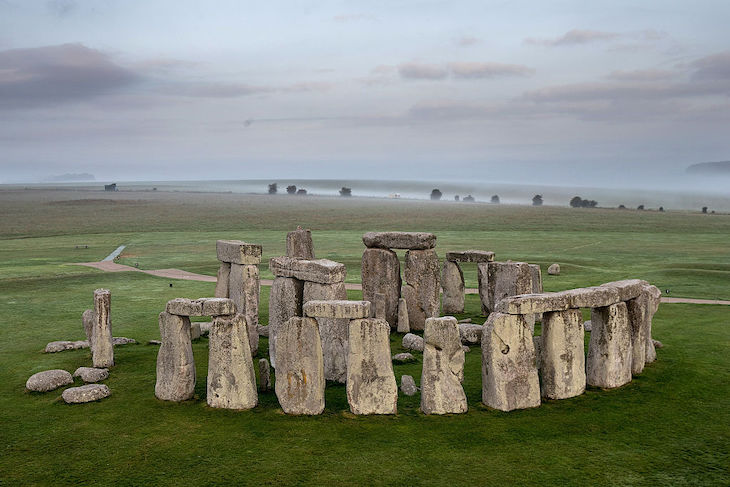History is an area of remarkable success in our schools thanks to recent education reforms. However, these impressive strides forward risk being undermined by a new wave of activism in classrooms.
This process of ‘decolonisation’ in history is not necessary
Following the Black Lives Matter protests of 2020, 83 per cent of schools have made changes to ‘diversify’ or ‘decolonise’ their curriculums in recent years. In many cases, this shake-up has brought politicised and one-sided narratives into schools. Inaccurate and poor-quality teaching resources are being used to give students a mistaken impression of the past.
During research for Policy Exchange’s report, Lessons from the Past, we found children being taught the ahistorical claim that Stonehenge was built by black people. Elsewhere, pupils learn radical and contested interpretations of the past: such as that the West African kingdoms, which sold other Africans to European slavers, were unaware of their role in the global slave trade. In one case, a membership organisation for subject experts has produced teaching resources describing the genital mutilation of slaves in ancient Rome as an early form of ‘gender transition’.
This process of ‘decolonisation’ is not necessary: 99 per cent of schools already teach slavery and 89 per cent teach the British Empire. Meanwhile, core elements of patriotic and constitutional British history, from the Battles of Agincourt and Waterloo to the Act of Union and the Glorious Revolution, are being dropped. Rigorous school history risks being supplanted by a fixation with diversity that denies students a coherent understanding of the past.
These concerning trends are being exacerbated by poor quality teacher training. Subject specialism has been hollowed out, to the extent that trainees on average receive just 17.8 days of subject instruction in a year-long course.
Despite the lack of time for subject specialisation, three in four university courses run sessions for trainees on diversifying or decolonising curriculums. One course specifically instructs teachers to challenge their department heads on what is being done to make the subject more diverse. New teachers, without sufficient training to be informed independent practitioners, are falling prey to activist approaches and unquestioningly adopting flawed and politicised teaching content.
Despite this, it is clear that, on the whole, history in schools is an area of strength. There was fierce criticism of former education secretary (and now Spectator editor) Michael Gove’s approach to history teaching and the re-centering of a British national narrative in schools when it was unveiled in 2014. A decade on, it is now clear National Curriculum reform and a greater focus on it by Ofsted have combined to deliver a broad and rigorous curriculum that exposes most students to the history of Britain and the wider world.
History is now the fifth most popular subject at both GCSE and A Level. Core events in our national past are widely taught, with over 85 per cent of schools surveyed teaching the Norman Conquest, Magna Carta, the Reformation, Industrial Revolution and the World Wars at Key Stage 3 and 66 per cent teaching the curriculum chronologically.
The health of history teaching is reflected by the fact that over 92 per cent of teaching hours in the subject are taught by specialists. Reassuringly, students from disadvantaged backgrounds on Free School Meals on average receive more history teaching than their peers.
In an increasingly diverse nation, history plays a vital role in building a patriotic, inclusive and cohesive society with shared values. Students should have a right to learn an unbiased and challenging history curriculum that gives them broad knowledge of the past and develops a clear understanding of key moments in British history. All pupils taking history at GCSE should be required to study a survey paper covering British history from 1066 to 1989. This would consolidate the success of past reforms and ensure all students taking the subject to 16 have a strong sense of the chronological sweep of our national past.
Improvements in history teaching represent a strong success of the last government. Yet Education Secretary Bridget Phillipson’s new push for curriculum reform risks undoing this legacy. The head of the government’s ongoing Curriculum Review, Becky Francis, famously criticised Tony Blair’s government for ‘an obsession with academic achievement’. Her interim report notes the importance of delivering ‘an inclusive and diverse learning experience’.
Rigorous lessons on Queen Matilda in the Anarchy and the emergence of the East India Company add colour and depth to school curriculums. Yet political pressure for diverse curriculums should not be allowed to shoehorn low quality, inaccurate and politicised history into our schools.
The government’s review risks empowering the forces threatening the impressive gains made in school history in the last decade. Instead, it should build on the success of recent reforms, ensuring that every history student is given a knowledge-rich understanding of Britain’s past.







Comments